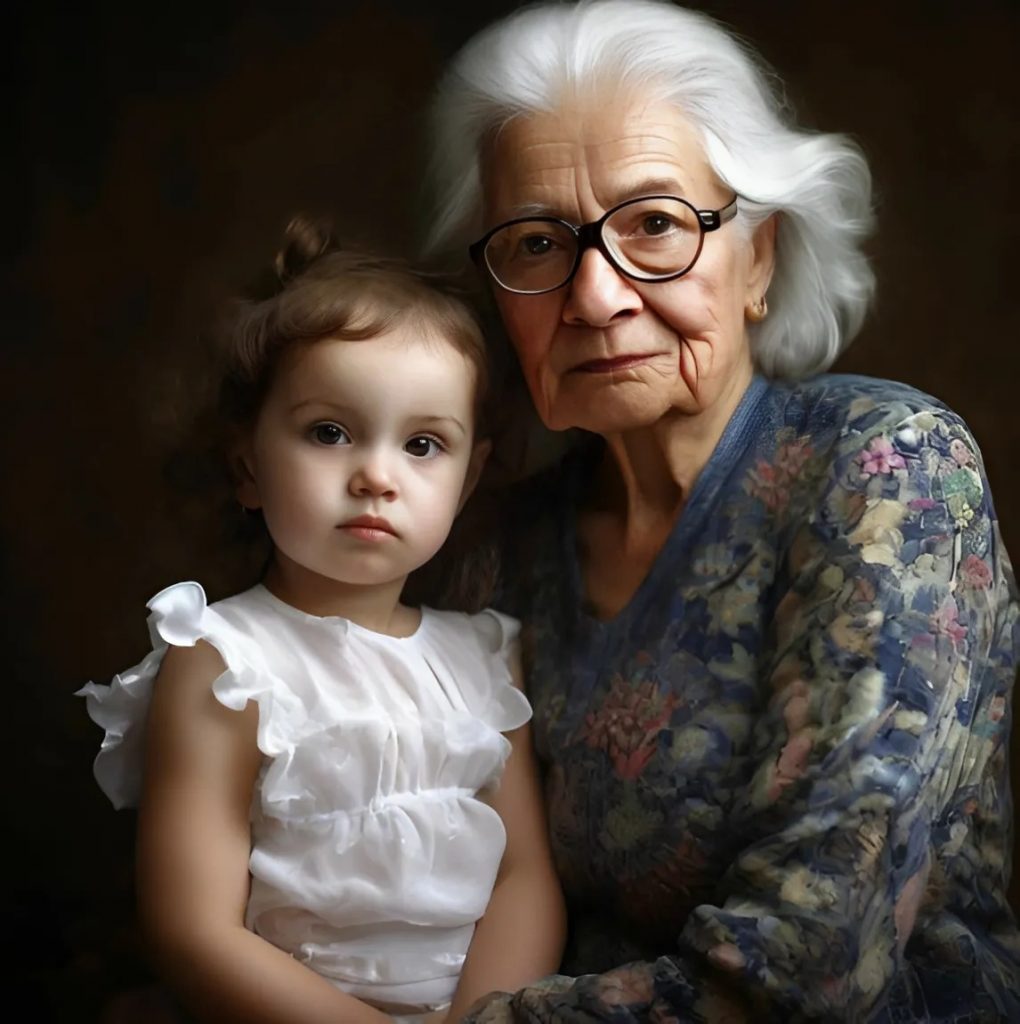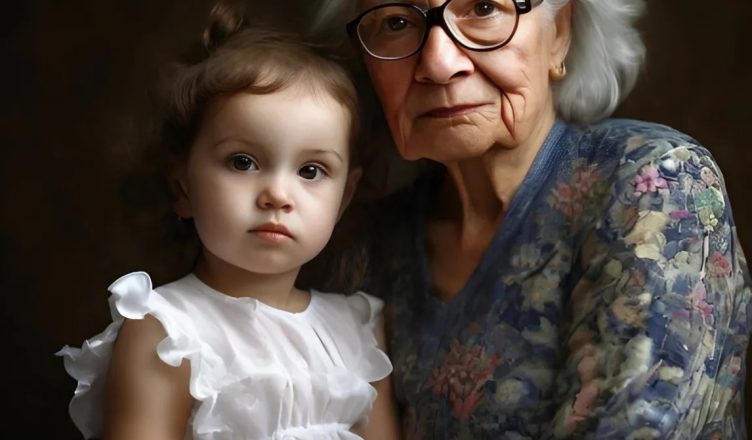The door creaked open with the sound of a tired sigh. Natalia, drained from another long shift, dropped her keys into the ceramic bowl by the entrance. Her muscles ached, but it wasn’t just physical fatigue that weighed on her—it was something deeper, something that had been building for months. The sound of a baby crying echoed from the back of the apartment, pulling her forward like an instinct she could no longer suppress.
She walked into the living room and stopped dead in her tracks.
The chaos was complete. A toddler’s toys were strewn across the couch and floor, blending into piles of candy wrappers, half-eaten fruit, greasy chicken bones, and empty soda bottles. The air was thick with a mixture of sour milk and stale food. Over the back of a chair hung a pair of dirty jeans, and on the seat, an unwrapped diaper sagged ominously. The television blared in the background as her daughter and son-in-law sat—passive, unmoved—scrolling through their phones.
And in the middle of it all, her one-year-old granddaughter saw her, let out a shriek of delight, and ran over with open arms.
Natalia scooped the child up without hesitation, burying her face in the baby’s hair. For a fleeting moment, there was comfort, warmth. Then the realization struck even harder: how could they allow the child to live like this?
She didn’t speak. Not yet. She carried the baby into the kitchen, sat her on a clean towel, and fetched a banana to calm her. Then she turned back to the living room, where her daughter, Alina, still hadn’t looked up.
“Are you just going to stand there?” Natalia finally asked, her voice quiet but edged with steel.
Alina glanced over, annoyed. “What’s wrong now?”
Natalia had rehearsed what she might say in a situation like this many times. But the words she used now weren’t rehearsed—they were forged in real-time, out of pain and disappointment.
“I work ten hours a day. I come home to this filth. You’re the mother here, not me. This is your home. Your child.”
Alina rolled her eyes. “We’re tired too, Mama. You have no idea.”

“No idea?” Natalia repeated. She dropped her purse on the floor and crossed her arms. “When I was your age, I worked two jobs and raised you alone. I didn’t have a partner to sit beside me and help. But I still kept the house clean. I still bathed you, fed you, loved you. You never lived like this.”
Her voice trembled not with rage, but with hurt.
Her son-in-law muttered something under his breath, barely audible. Natalia heard it anyway. “It’s not that bad.”
That was when something shifted inside her.
For years, she had tried to help, to carry the weight of their irresponsibility without complaint. She had taken care of the baby, bought groceries, cooked meals, and cleaned their apartment more times than she could count. She had done it out of love. But love without boundaries, she realized, turns into enablement.
That night, Natalia didn’t clean. She didn’t stay. She kissed her granddaughter, whispered something sweet into her ear, and left.
For two days, they didn’t hear from her. The apartment began to sink into deeper disarray. The child grew fussier. There was no fresh food. No clean clothes. The silence from Natalia wasn’t just absence—it was deliberate.
On the third day, Alina called her in frustration. “Why are you ignoring us?”
Natalia responded calmly, “I’m not ignoring you. I’m giving you space—to be parents.”
“What is that supposed to mean?” Alina asked.
“It means I’m not coming over anymore to clean your mess. I’m not your maid. And I’m not raising your daughter for you. You are.”
The line went silent. Natalia didn’t hang up. She waited.
Alina finally spoke, but her voice was quiet. “We didn’t mean to take advantage.”
“But you did,” Natalia replied. “And it’s time you stopped. That child deserves better than two grown adults who can’t take responsibility for her.”
That conversation marked a turning point. There was no explosive drama, no screaming or ultimatums. Just a realization. For the first time, Natalia placed the burden of responsibility squarely where it belonged.
Alina cried that night. She looked around the apartment and saw it—truly saw it—for what it had become. Her husband, feeling the weight too, quietly began picking up the toys. They didn’t speak much, but they moved, together.
The next morning, Alina called again. “Can you come over?” she asked, sheepish.
“Is the apartment clean?” Natalia asked, flatly.
“It will be.”
When Natalia returned, she was cautious, but hopeful. The difference was small, but meaningful. The table was wiped down. The trash had been taken out. The air was fresh. Most importantly, the baby was clean and smiling.
Natalia didn’t say much. She didn’t need to. She helped prepare a meal, but only after Alina had started cooking. She played with her granddaughter, but left the diaper changing to her parents.
This new pattern was not in
